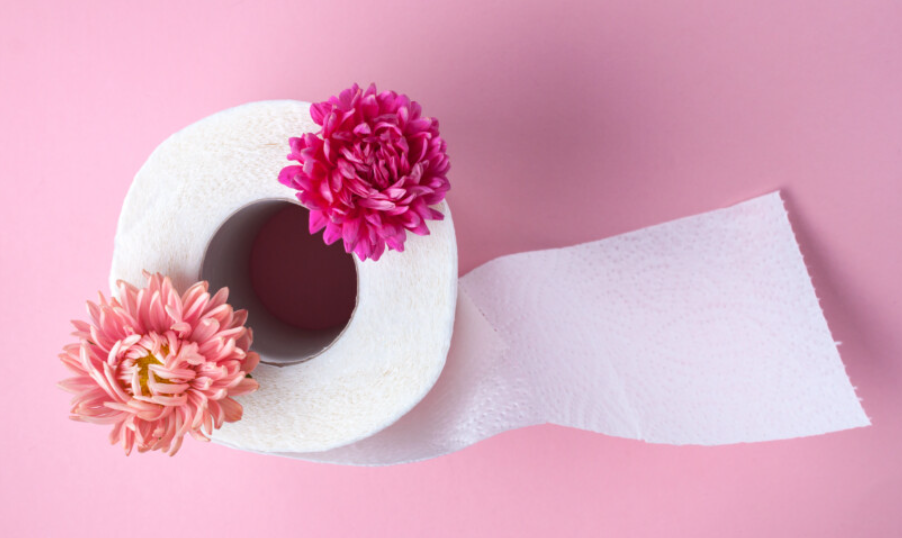Is using perfumed toilet paper (and sometimes colored) a common habit for many. Despite being more expensive, some believe that this type of paper is more effective at eliminating odors. But is it really? Are there risks associated with using scented toilet paper?
Is Using Scented Toilet Paper Harmful?
A specialist in gynecology and obstetrics and a professor at the Faculty of Medicine of the University of Coimbra (FMUC) in Portugal, acknowledges that it is common for women to fear that a lack of hygiene in the genital area may lead to the development of unpleasant odors and infections, which is why they resort to products like scented toilet paper.
However, the gynecologist emphasizes that “scented hygiene products can be associated with skin irritation.” Therefore, when experiencing any symptoms of irritation or local changes, the use of scented toilet paper “should be avoided.”
According to the FMUC professor, the same applies to colored toilet paper. “Often, it becomes difficult to establish a cause-and-effect relationship,” but in the doctor’s view, in the presence of symptoms, discontinuing the use of these products is a prudent approach.
In the same vein, a text from the University of Rochester Medical Center (URMC) recommends one of the measures for preventing “vaginal inflammation or infection” is to avoid “chemical products,” such as “vaginal sprays,” “scented toilet paper,” and “scented tampons.”
Other preventive measures mentioned in the context of hygiene include: vaginal douching should only be done with a doctor’s recommendation since this is a procedure that is “rarely necessary” and can “disrupt the vaginal balance.” It is also recommended to “wash the external vaginal area (vulva) daily with mild, unscented soap,” keeping it “as dry as possible.”
Additionally, it is advised to “wipe from front to back after a bowel movement” as this helps prevent the spread of bacteria from the anus to the vagina. If using tampons during menstruation, it is essential to “change the tampon as often as indicated on the packaging,” as stated in the same text.
In another article published by Harvard Health Publishing, it is mentioned that “in sensitive individuals, chemicals and medications applied in the anal area can cause local irritation or allergic reactions.” It is noted that “some of the main culprits are the dyes and perfumes used in toilet paper,” “feminine hygiene sprays,” and “other deodorants for the area around the anus or genitals,” “talcum powders,” and “skin cleansing products,” especially scented ones.
How to Choose the Right Toilet Paper?
Maria Carvalho explains that the ideal genital hygiene “should combine water – which removes water-soluble particles – with an agent capable of removing solid particles and liposoluble residues.” However, she acknowledges that “since it is not possible to use water and cleaning agents throughout daily life, access to toilet paper is inevitable.”
As the gynecologist clarifies, “the choice of the most suitable toilet paper will depend on an individual response,” considering that “the products used should be safe, contribute to improving comfort and hygiene.” Furthermore, she emphasizes that “cleaning products are not intended to sterilize the anogenital region” but rather “to eliminate residues and secretions that can lead to bacterial colonization and infections.”
Ideally, these products should not irritate or overly dry out the area to avoid altering the lipid layer, also maintaining a “slightly acidic pH.” This is because, “when local irritation occurs, the defense mechanisms will not work synergistically, which may contribute to infections and other skin changes,” concludes the specialist.
And now you know which path to choose for better intimate hygiene? There are not many doubts left, right?
Sources of Information:
- Scented Toilet Paper and Skin Irritation: Potential and Prevention
- Vulvovaginitis – Vaginal Inflammation and Irritation
- Vaginitis: Causes, Symptoms, Treatment & Prevention
Medical Disclaimer
This article is for informational purposes only and not a substitute for professional medical advice, diagnosis, or treatment. Always seek the advice of your physician or other qualified healthcare provider with any questions you may have regarding a medical condition.

